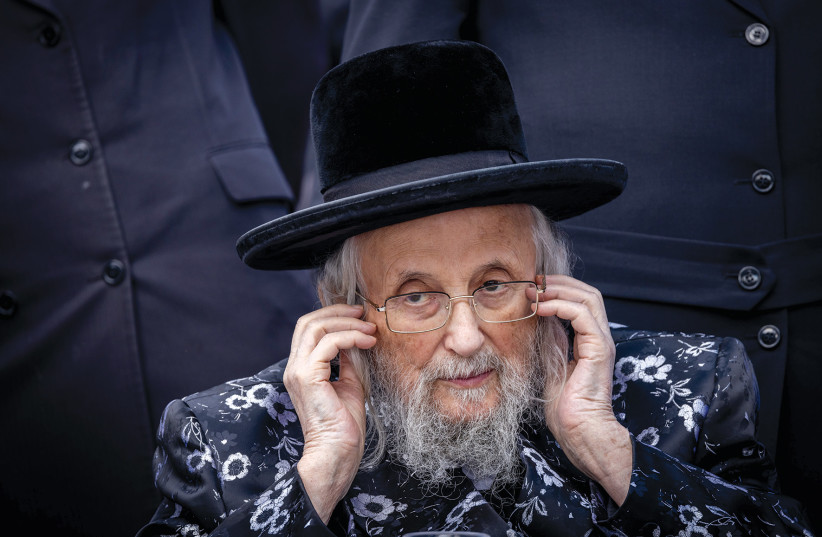Interior Minister Ayelet Shaked’s Yamina Party and Communications Minister Yoaz Hendel’s Derech Eretz Party are running together in the November 1 election under the new name, The Zionist Spirit, the two announced in Kfar Maccabiah on July 27. Pledging to work for a broad Zionist coalition, Hendel said, “We oppose a narrow Netanyahu-led government that will only look out for his interests, and a narrow left-wing coalition that will include Arab parties.” According to a Maariv poll published on August 5, The Zionist Spirit would win four seats, which could potentially give the pro-Netanyahu bloc 62 seats, a majority in the 120-seat Knesset.
Justice Minister Gideon Sa’ar signed a bilateral agreement on judicial cooperation with his Moroccan counterpart Abdellatif Ouahbi in Rabat on July 25, adding legal links to a growing list of cooperation accords since normalizing relations in 2020. Under the deal, the two countries will share expertise and modernize their judicial systems through digitalization, while cooperating in the fight against organized crime, terrorism, and human trafficking. A week earlier in Geneva, Israel and Morocco signed their first official Memorandum of Understanding on Intellectual Property in a move aiming to boost innovation and strengthen entrepreneurial relations between the countries.
Prime Minister Yair Lapid urged UN Secretary-General Antonio Guterres to disband the UN Commission of Inquiry into last year’s 11-day war between Israel and Hamas following “antisemitic remarks” made by one of the members. Miloon Kothari, one of the COI’s three members, told a podcast that the “Jewish lobby” controlled social media and questioned why Israel is a member of the UN. “I am writing to you to demand the immediate removal of all three members of the COI tasked with investigating Israel, and the disbanding of the commission,” Lapid wrote in the letter to Guterres dated July 31. Kothari apologized for his remarks.
Iran has the technical capability to produce a nuclear bomb but has no intention of doing so, Mohammad Eslami, head of Tehran’s atomic energy organization, said on August 1, according to the Fars news agency. While uranium enriched to 90% is suitable for a nuclear bomb, Tehran’s 2015 nuclear deal with world powers, which it is now renegotiating, set a cap of 3.67%. Meanwhile, US Secretary of State Antony Blinken backed a proposal from the European Union aimed at salvaging the Iran nuclear deal, saying on August 1 that Washington is “prepared to move forward on the basis of what’s been agreed... but it remains to be seen whether Iran is willing and able to move forward.”
The start of August saw a series of price rises in Israel including electricity and milk, although gasoline and public transport became cheaper. Price-controlled dairy items were up 4.9 percent, with a liter of milk now costing 6.23 shekels ($1.84), while electricity prices rose by 8.6%. On the other hand, gasoline prices dropped by about 1.50 shekels ($0.44) per liter after rising steadily in recent months. While most public transport prices were cut, they were notably halved for those between the ages of five to 18 and 60 to 75, as well as for people with disabilities. Senior citizens over 75 and children under five can now travel on buses and trains for free.
Rabbi Yitzchok Tuvia Weiss, a leader of the anti-Zionist Eda Haredit community and head of its Badatz kashrut court, died on July 29 in Jerusalem at 95. His funeral on the Mount of Olives was attended by tens of thousands. Known for his unbending efforts to enforce Shabbat restrictions and prevent the conscription of yeshiva students into the IDF, he opposed haredi protests against the state on Remembrance Day. Born in Slovakia, Weiss went to Britain as part of the Kindertransport,, and served as a community leader in Antwerp before taking on his leadership role of the Eda Haredit in Israel in 2004.

